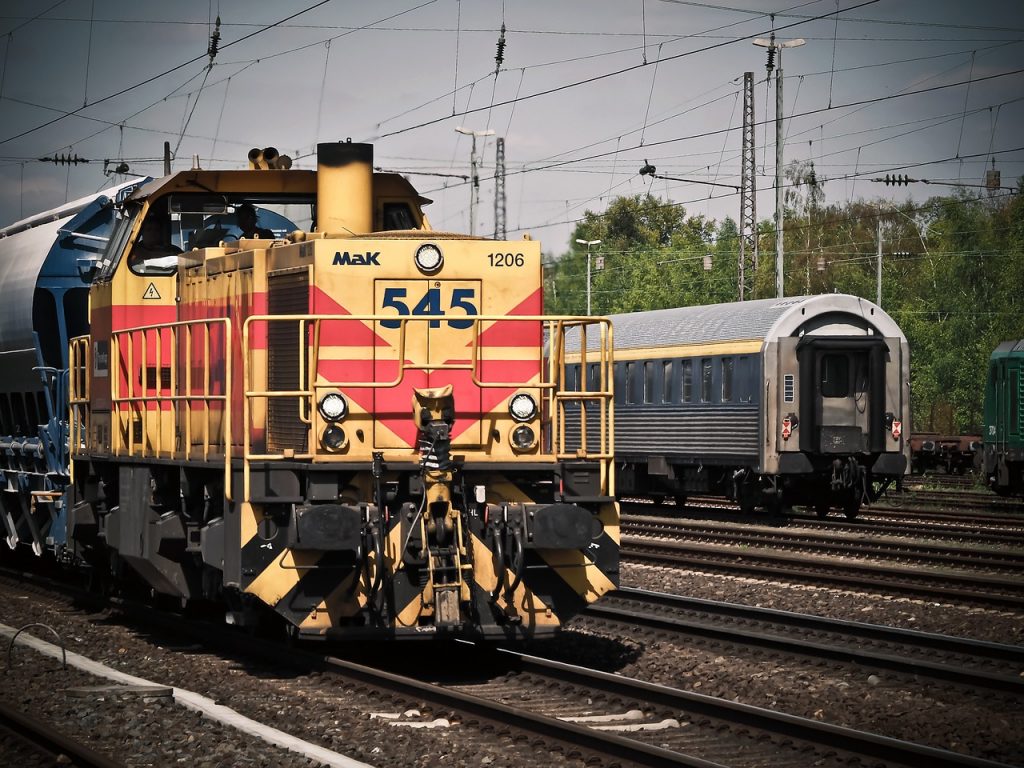An Upcoming Union Strike Going To Disrupt The Supply Chain Once Again?
A rail strike, which was narrowly averted during the summer, could once again occur and further disrupt an already fractured and strained supply chain.
This article is more than 2 years old
On Monday, a union of railroad track maintenance workers were unable to come to an agreement with national freight carriers, introducing the possibility of a railroad strike. The rejected agreement came into play after a vote on Monday by the Brotherhood of Maintenance of Way Employees Division resulted in 43% in favor of a five-year contract with 57% opposed. If a strike were to occur, the already chaotic supply chain issues around the world could be exacerbated.
One of the biggest problems with the proposed contract was “the lack of paid sick time off,” reported CNN. The pandemic revealed how the poor paid sick time policy was inefficient and unrealistic, and the railroad companies failed to address the problem at all. Now, with a possible strike looming around the corner, railroad management is ready to renegotiate.
Of the 23,000 members of BMWE, 12,000 casted their vote on Monday. The union, which is the third largest of the major railroad unions, said that they will attempt to renegotiate the terms with national freight railroad management to try and avoid a strike. The two larger freight unions are in the process of completing their own voting process by mail.
If the BWME is unable to come to an agreement with the association that represents national railroad management, it is possible that a strike could occur. For now, the railroads are to remain in operation “until at least Nov. 19,” reported CNN. The current contract will remain in place until then.
The association representing the railroad management wasn’t satisfied with the outcome of the vote, stating that it felt “disappointed,” reported CNN. However, since they and the union workers agreed to keep the current contract in place for now, the association assured the public that a strike wasn’t an immediate risk. The tables may soon turn if the voting results from the other two larger railroad unions reveal that they too aren’t aligned with their proposed contracts.
The Sheet Metal, Air, Rail, Transportation union and the Brotherhood of Locomotive Engineers and Trainmen union haven’t voted yet. If they aren’t in agreement with railroad management either, the risk of strike could be heightened. The engineers of BLET seem to have caused concern for railroad management, as their online conversations with each other indicates that they’d rather begin to strike before seeing a contract.

Although some BLET members are handling the votes in a more cautious manner, the fear of a strike has raised alarms on all sides. The SMART union, which consists mostly of conductors, will receive their voting ballots through the mail later this month. They will have 21 days to submit their votes, and the results should be ready by mid-November.
Mid-November is also around the same time that the BMWE could go on strike if they aren’t able to come to an agreement with railroad management. Last month, unions and railroad management endured a 20-hour negotiating session, and were able to reach an agreement just hours before the deadline.
If the BMWE does not reach an agreement with the railroads and ends up going on strike, the other two larger unions will not be able to go to work. The likelihood that both the BLET and SMART unions will vote against the proposed contracts is probable since BMWE already rejected their contract. Most would expect that the two larger unions would be the only ones to reject deals, but if BMWE rejected it first, it signals that the terms may be so unfavorable that the larger unions would undoubtedly vote against the deals too.



